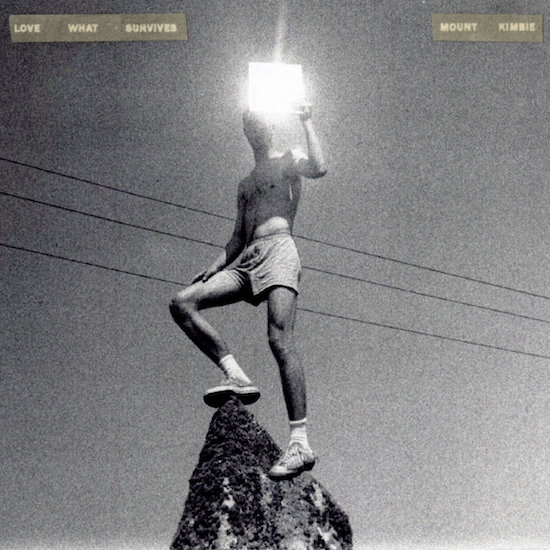Mount Kimbie’s third studio album, Love What Survives, is a creative continuation from 2013’s Cold Spring Fault Less Youth, taking risks and further exploring alienation, immersive production and the concept of roots. Initially the record can sound disjointed, with tracks jumping from one musical style to the next, but after a few listens it shines as a cohesive collection from some of London’s most exciting artists.
Kai Campos and Dominic Maker formed Mount Kimbie in 2008, while studying at London’s Southbank University. They released their debut EP at the start of 2009 and have since released four more EPs as well as their three albums. Love What Survives seeks to further widen the distance between the duo and ‘post-dubstep’ – the somewhat pretentious term they became synonymous with in the early years of their career. This album was three years in the making – sufficient time for intense creative development, which was amplified when Maker relocated to Los Angeles in 2016 while Campos remained in London.
For Maker, feeling alienated in his adopted hometown changed the course of his creative process, allowing for a fresh perspective that is clear throughout Love What Survives. ‘Audition’, for example, brings an early 2010s feeling as it flits between being an indie rock piece and wistful, electronic track sans vocals; ‘Delta’ sounds more homegrown, with an organic feeling reflecting the fact that the duo have expanded their touring band.
Both make for easy, nostalgia-inducing tracks perhaps strategically placed as means of recovery after heavy King Krule and James Blake features. While Maker’s move to California helped define the record’s sound, it’s clear that this band’s roots are still in London. Mica Levi also features on the album, alongside fellow Londoners James Blake and King Krule, and together they lend an immersive and personal quality.
‘We Go Home Together’ is bass heavy, testing the limits of Blake’s vocal range; an organ creeps right through the track, making it extra ethereal and dissociative. Mica Levi features on the lullaby-esque ‘Marilyn’, perhaps the album’s greatest song, with otherworldly, gamelan-inspired instrumentation and rhythms giving a glimpse of where Mount Kimbie could be heading as they gain a fresh perspective. A similar style can be heard on ‘You Look Certain (I’m Not So Sure)’, which sounds good but arouses suspicion that the duo are creating a habit of latching onto a niche they suit until it wears out. Similarly, this album contains King Krule’s second collaboration with Mount Kimbie – ‘Blue Train Lines’ – but it doesn’t quite live up to the glory of his first outing with the duo (2013’s ‘You Took Your Time’).
Love What Survives, with its seductive beats and incredible production, is a strong record that finally cuts Mount Kimbie’s ties with ‘post-dubstep’. If they can avoid falling into routine, their post-post-dubstep future looks exciting.


